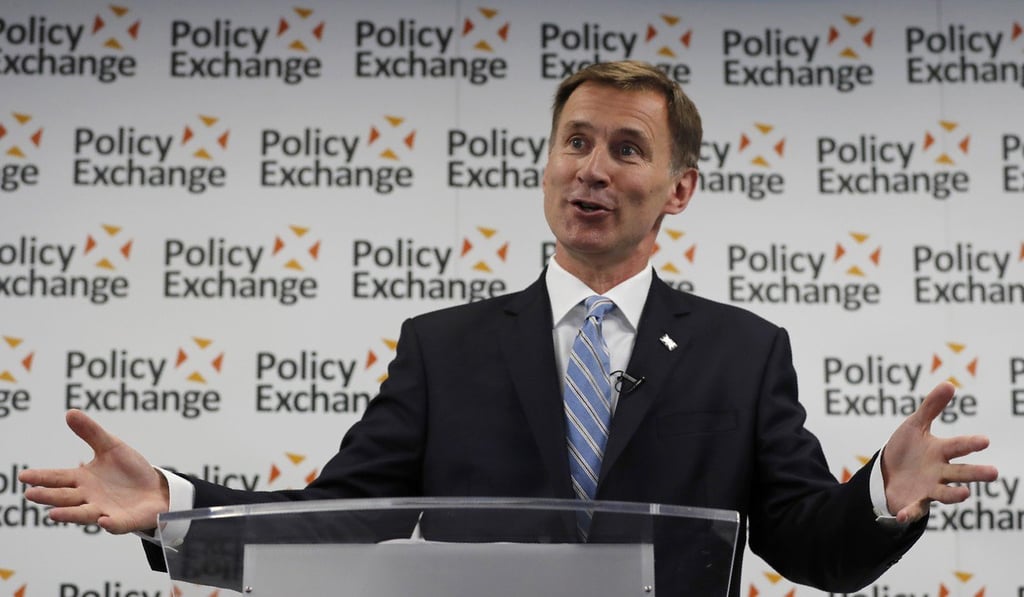China protests over British Foreign Secretary Jeremy Hunt’s warning on Hong Kong agreement
- Beijing accuses Conservative leadership contender of interfering after calling for handover deal to ‘be honoured’
- Attack on ‘shameless’ and ‘hypocritical’ Hunt raises questions about how far it sees itself as bound by the 1984 joint declaration

China lodged protests with Britain on Wednesday over Foreign Secretary Jeremy Hunt’s warning that Beijing would face serious consequences if it failed to honour the terms of the agreement to hand over Hong Kong.
Chinese foreign ministry spokesman Geng Shuang said Beijing had made “stern representations” over the comments, and accused Hunt of still harbouring “colonial illusions”.
“We called on the British side, especially Hunt, to stop being overconfident and grossly interfering in Hong Kong affairs. This is doomed to fail,” Geng said.
On Tuesday Hunt said that the Sino-British Joint Declaration, signed in 1984 and setting out the terms for Hong Kong’s return to Chinese sovereignty, was a legally binding agreement “to be honoured … and if it isn’t there will be serious consequences”.

Hunt’s comments came after Hong Kong was rocked by some of the worst political unrest since its 1997 handover from Britain to China.
Protests in the city last month attracted up to 2 million marchers opposing a proposal that would allow people to be extradited to mainland China.